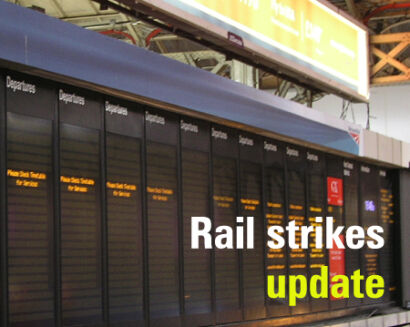A new controversy has been sparked by plans to allow agency staff to replace striking workers, although critics have pointed out that recruits are unlikely to have the skills to work in safety-critical jobs.
Conservative leadership candidate Liz Truss said she will change the rights of trade unions if she becomes Prime Minister by introducing minimum service levels on critical national infrastructure, using primary legislation in the first 30 days in government.
RMT general secretary Mick Lynch responded: ‘The proposals amount to the biggest attack on trade union and civil rights since labour unions were legalised in 1871. Truss is proposing to make effective trade unionism illegal in Britain and to rob working people of a key democratic right.
‘If these proposals become law, there will be the biggest resistance mounted by the entire trade union movement, rivalling the general strike of 1926, the Suffragettes and Chartism.’
More than 40,000 staff at 14 train operating companies and Network Rail walked out for 24 hours on Wednesday in the long-running dispute about pay, jobs and conditions, and TSSA staff at Avanti West Coast also staged their own stoppage. ASLEF drivers at seven Train Operating Companies are following suit on Saturday.
The RMT is set to call two more national strikes on 18 and 20 August, while TSSA is holding a second strike ballot at West Midlands Trains, TransPennine Express, Greater Anglia and Northern which closes on 25 August.
TSSA members on GWR will stage industrial action short of a strike on Saturday, while the TSSA has given notice of a strike or action short of a strike at 11 operators on 18 and 20 August, which will coincide with the RMT action. The TSSA walkout will affect its members working at stations, and also operational, maintenance, supervisory and management staff.
ASLEF is set to strike again at nine operators on 13 August, while the RMT said its London Underground members will hold a one-day strike on 19 August. The dispute at TfL has been worsened by what the RMT says has been TfL’s refusal to share a draft government proposal about future funding.


